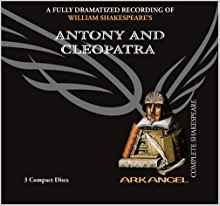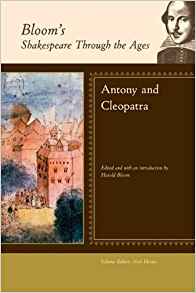-
Antony and Cleopatra: Annotated
William Shakespeare
eBook (, May 7, 2020)Antony and Cleopatra is a disaster by William Shakespeare. It was first imprinted in the First Folio of 1623. The plot depends on Thomas North's interpretation of Plutarch's Life of Markus Antonius and follows the connection among Cleopatra and Mark Antony from the hour of the Parthian War to Cleopatra's self destruction. The significant foe is Octavius Caesar, one of Antony's kindred triumvirs and the future first sovereign of Rome. The catastrophe is a Roman play portrayed by quick, all encompassing movements in geological areas and in registers, switching back and forth between arousing, innovative Alexandria and the more even minded, grim Rome. Many consider the job of Cleopatra in this play one of the most unpredictable female jobs in Shakespeare's work. She is as often as possible vain and dramatic, inciting a crowd of people nearly to disdain; simultaneously, Shakespeare's endeavors contribute both her and Antony with unfortunate magnificence. These conflicting highlights have prompted broadly separated basic reactions.
-
Antony and Cleopatra Annotated
William Shakespeare
Paperback (Independently published, July 30, 2020)Antony and Cleopatra First Folio title is a tragedy by William Shakespeare. The play was first performed, by the King's Men, at either the Blackfriars Theatre or the Globe Theatre in around 1607 its first appearance in print was in the Folio of 1623.
-
Antony and Cleopatra by William Shakespeare
None
Audio CD (Audio Partners, The, )None
-
Antony and Cleopatra Bloom's Shakespeare Through the Ages by William Shakespeare
None
Hardcover (Blooms Literary Criticism, April 2, 1830)None
-
Antony and Cleopatra
William Shakespeare
Hardcover (Modern Language Assn of Amer (1990-07-01), Jan. 1, 1656)Will be shipped from US. Brand new copy.
-
Antony and Cleopatra Annotated
William Shakespeare
(, Sept. 15, 2020)Antony and Cleopatra (First Folio title: The Tragedie of Anthonie, and Cleopatra) is a tragedy by William Shakespeare. The play was first performed, by the King's Men, at either the Blackfriars Theatre or the Globe Theatre in around 1607;its first appearance in print was in the Folio of 1623.Antony and Cleopatra follows the relationship between Cleopatra and Mark Antony from the time of the Sicilian revolt to Cleopatra's suicide during the Final War of the Roman Republic. The major antagonist is Octavius Caesar, one of Antony's fellow triumviri and the future first emperor of Rome. The tragedy is a Roman play characterised by swift, panoramic shifts in geographical locations and in registers, alternating between sensual, imaginative Alexandria and the more pragmatic, austere Rome.
-
Antony and Cleopatra
William Shakespeare
eBook (, Dec. 29, 2019)Antony and Cleopatra is a tragedy William Shakespeare. It was first printed in the First Folio of 1623. The plot is based on Thomas North's translation of Plutarch's Life of Markus Antonius and follows the relationship between Cleopatra and Mark Antony from the time of the Parthian War to Cleopatra's suicide. The major antagonist is Octavius Caesar, one of Antony's fellow triumvirs and the future first emperor of Rome. The tragedy is a Roman play characterized swift, panoramic shifts in geographical locations and in registers, alternating between sensual, imaginative Alexandria and the more pragmatic, austere Rome. Many consider the role of Cleopatra in this play one of the most complex female roles in Shakespeare's work. She is frequently vain and histrionic, provoking an audience almost to scorn; at the same time, Shakespeare's efforts invest both her and Antony with tragic grandeur. These contradictory features have led to famously divided critical responses.
-
ANTONY AND CLEOPATRA
William Shakespeare
eBook (, Sept. 9, 2015)Antony and Cleopatra is a tragedy by William Shakespeare. The play was probably performed first in about 1607 at Blackfriars Theatre or the Globe Theatre by the King's Men.[1][2] Its first known appearance in print was in the First Folio of 1623. The plot is based on Thomas North's translation of Plutarch's Lives and follows the relationship between Cleopatra and Mark Antony from the time of the Sicilian revolt to Cleopatra's suicide during the Final War of the Roman Republic.
-
Antony and Cleopatra
William Shakespeare
(, Aug. 7, 2019)Antony and Cleopatra is a tragedy by William Shakespeare. It was first printed in the First Folio of 1623.The plot is based on Thomas North's translation of Plutarch's Life of Markus Antonius and follows the relationship between Cleopatra and Mark Antony from the time of the Parthian War to Cleopatra's suicide. The major antagonist is Octavius Caesar, one of Antony's fellow triumvirs and the future first emperor of Rome. The tragedy is a Roman play characterized by swift, panoramic shifts in geographical locations and in registers, alternating between sensual, imaginative Alexandria and the more pragmatic, austere Rome. Many consider the role of Cleopatra in this play one of the most complex female roles in Shakespeare's work. She is frequently vain and histrionic, provoking an audience almost to scorn; at the same time, Shakespeare's efforts invest both her and Antony with tragic grandeur. These contradictory features have led to famously divided critical responses.
-
Antony and Cleopatra : Annotated
WILLIAM SHAKESPEARE
(, April 24, 2020)ANTONY & CLEOPATRAAntony and Cleopatra was written in 1607, following the incredible period that gave us Hamlet, Othello, King Lear, and Macbeth. Although classified sometimes as a tragedy, the play is unique and difficult to categorize. Some put it with Julius Caesar and Corialanus, the Roman plays: all three use Plutarch's Lives of the Noble Grecians and Romans as their primary source, and all three have concerns steeped in historical and political questions. In all three of these plays, Shakespeare shows an impressive (although sometimes overstated) ability to assimilate the classical world on its own terms. While Hamlet and Lear are basically Renaissance characters, far removed from the original settings of the source materials Shakespeare used, the characters of the Roman plays are, to a large extent, Romans moving in a Roman world. Partly, this phenomenon is a tribute to the strength and vitality of Plutarch's writing. Although Shakespeare alters Plutarch freely to match his own dramatic purposes, Plutarch's power to speak for his time and place shines through Shakespeare's adaptations. And while Shakespeare remains true to the essence of his source, he also deepens what he finds there.Historically, the events of Antony and Cleopatra took place in the late first century BCE. Julius Caesar ends in victory for Octavius, Lepidus, and Antony, who defeat Caesar's assassins and divide the world between themselves. Antony and Cleopatra picks up the story years later. In the course of the play, the three-member alliance, called the triumvirate, will fall apart. The demands of history and power decree that Rome must be ruled by one man alone. Lepidus, the weakest of the three generals, is not a serious contender for ultimate power. The final contest will be between Antony and Octavius.
-
Antony and Cleopatra
William Shakespeare
(, April 20, 2020)Antony and Cleopatra is a tragedy by William Shakespeare. It was first printed in the First Folio of 1623.The plot is based on Thomas North's translation of Plutarch's Life of Markus Antonius and follows the relationship between Cleopatra and Mark Antony from the time of the Parthian War to Cleopatra's suicide. The major antagonist is Octavius Caesar, one of Antony's fellow triumvirs and the future first emperor of Rome. The tragedy is a Roman play characterized by swift, panoramic shifts in geographical locations and in registers, alternating between sensual, imaginative Alexandria and the more pragmatic, austere Rome. Many consider the role of Cleopatra in this play one of the most complex female roles in Shakespeare's work. She is frequently vain and histrionic, provoking an audience almost to scorn; at the same time, Shakespeare's efforts invest both her and Antony with tragic grandeur. These contradictory features have led to famously divided critical responses.
-
Antony and Cleopatra
William Shakespeare
Paperback (Independently published, Aug. 31, 2020)Antony and Cleopatra is a tragedy William Shakespeare. It was first printed in the First Folio of 1623. The plot is based on Thomas North's translation of Plutarch's Life of Markus Antonius and follows the relationship between Cleopatra and Mark Antony from the time of the Parthian War to Cleopatra's suicide. The major antagonist is Octavius Caesar, one of Antony's fellow triumvirs and the future first emperor of Rome. The tragedy is a Roman play characterized swift, panoramic shifts in geographical locations and in registers, alternating between sensual, imaginative Alexandria and the more pragmatic, austere Rome. Many consider the role of Cleopatra in this play one of the most complex female roles in Shakespeare's work. She is frequently vain and histrionic, provoking an audience almost to scorn; at the same time, Shakespeare's efforts invest both her and Antony with tragic grandeur. These contradictory features have led to famously divided critical responses.